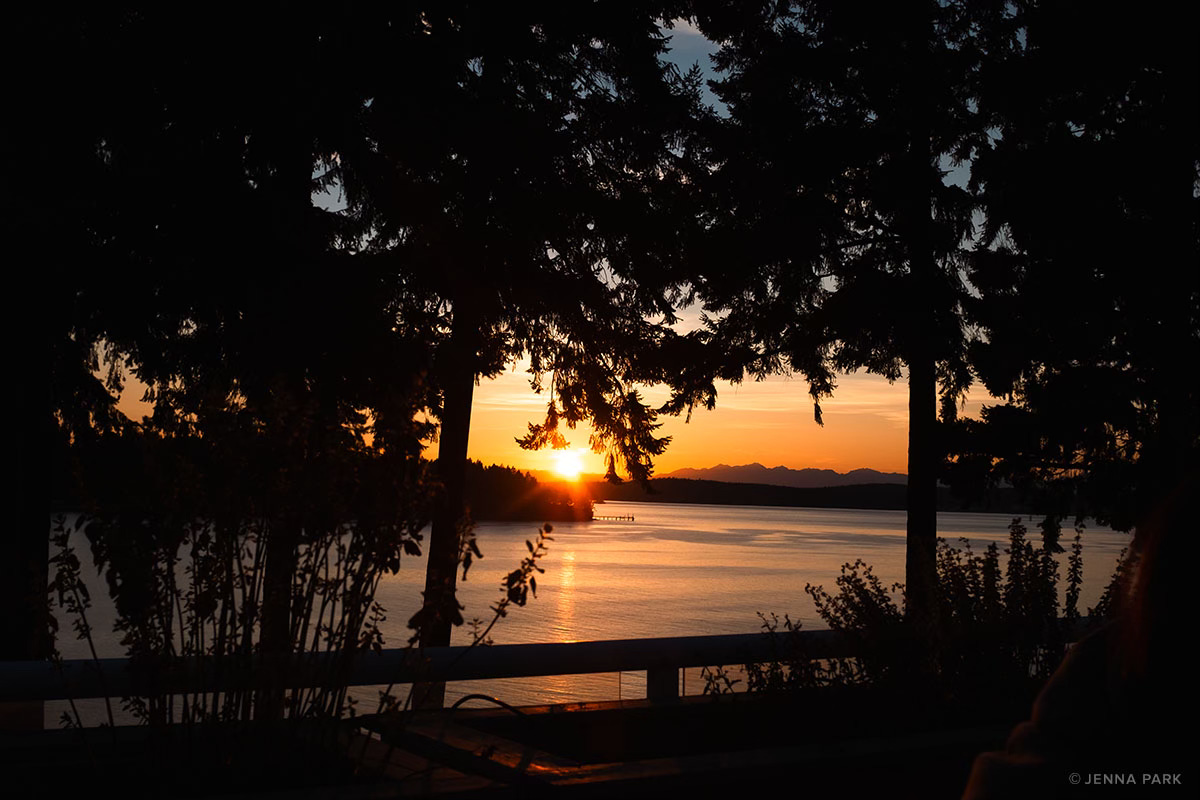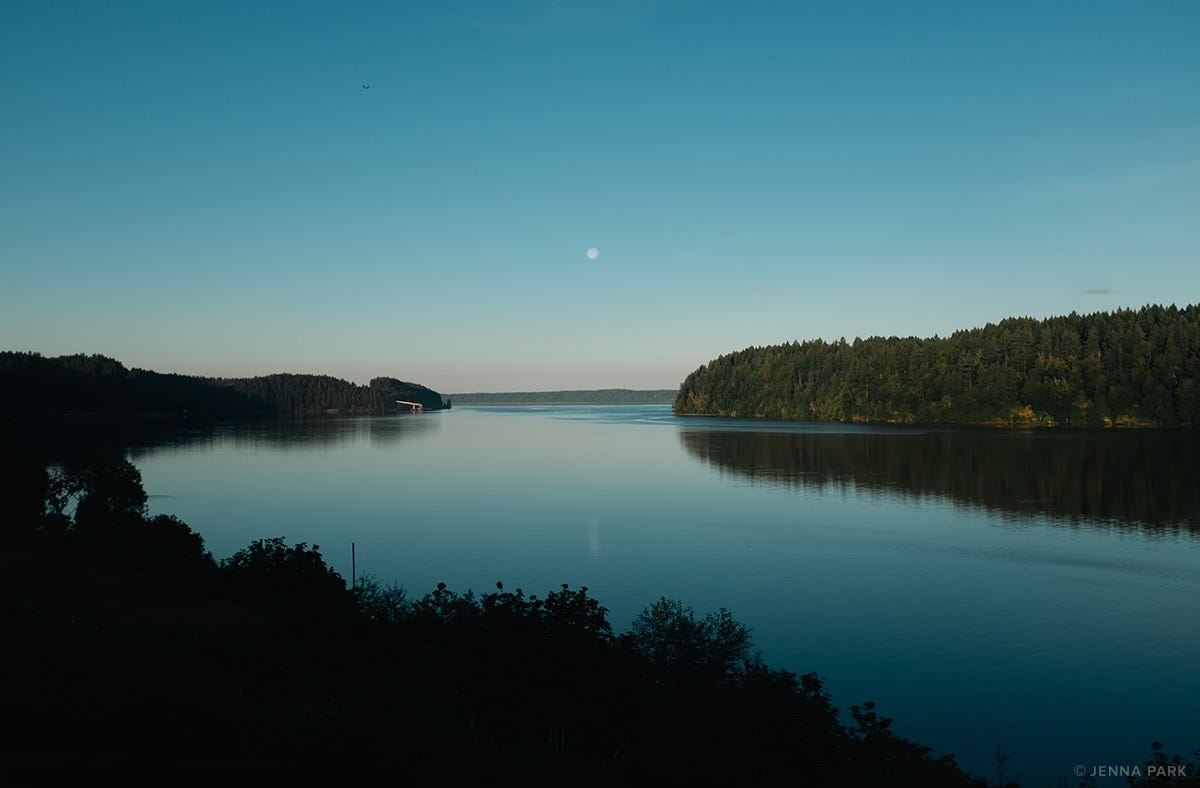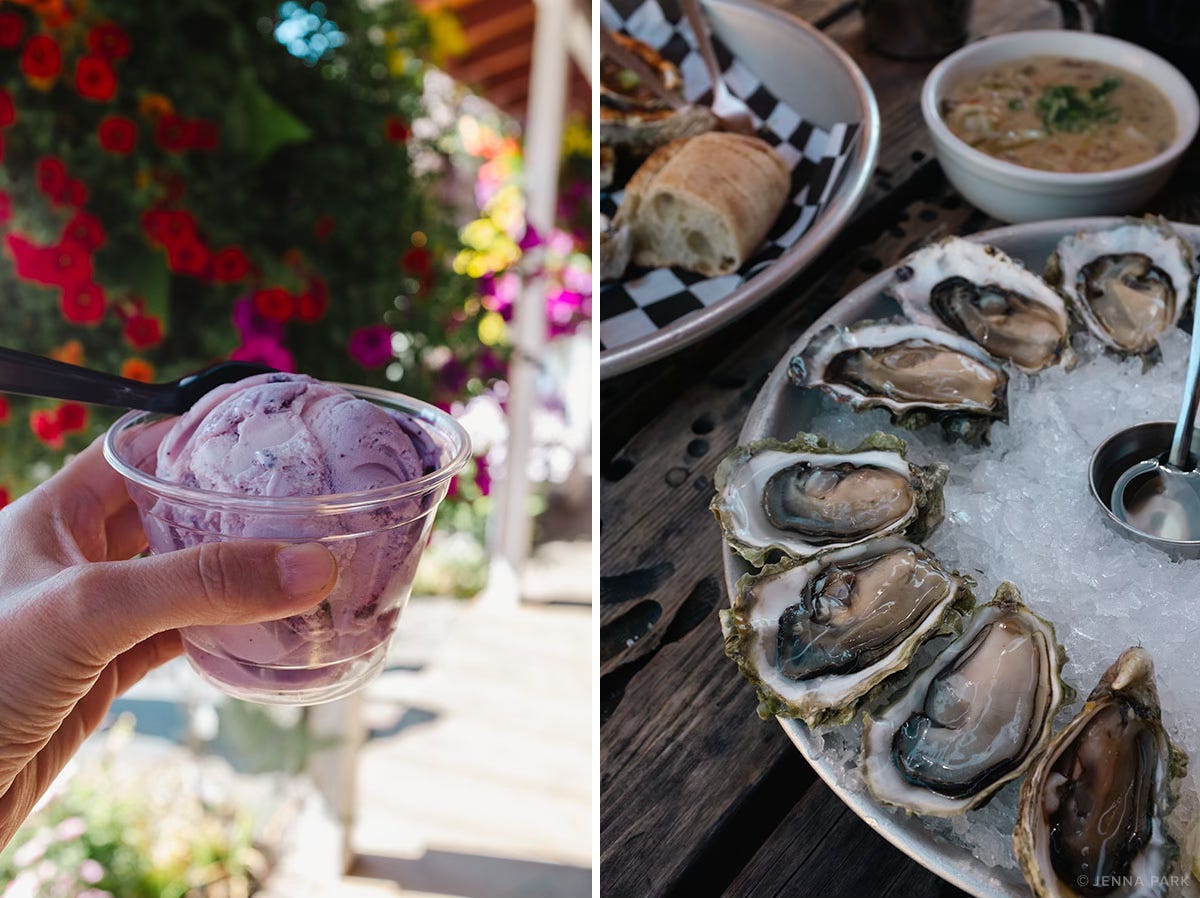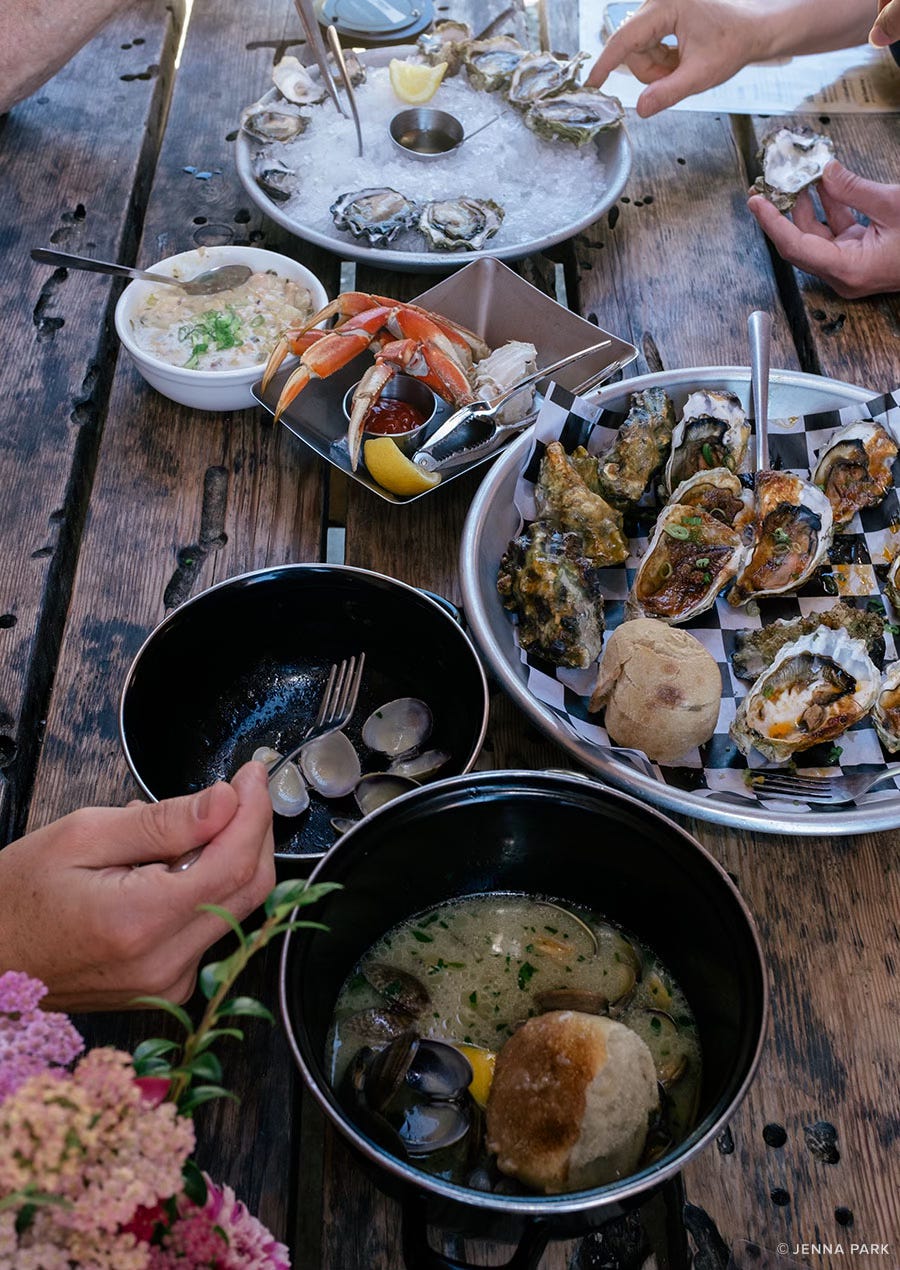It feels strange returning to a place after someone is gone. I realized last summer when my step-father-in-law passed away right after we left Seattle that nearly all the women in our family were undergoing big transitions. Different circumstances in various phases of life, but similar in that we were having to learn how to live on our own after a death of a husband, a break-up, and the first move away from home. In my particular circumstance, I wasn’t the one leaving or being left behind (well, not in finality), but it would be the first fall with both my children gone.
There’s often a purge that accompanies periods of transition that life-altering. I can attest to the restless urge of wanting to scrub everything in sight and deliberate over every object in the home.
It’s not to scrub the house of a person’s memory, per se—although in my mom’s case, she cleared my dad’s things and put the house up for sale so fast, I didn’t get a chance to claim anything to remember him by. The only thing I managed to walk away with was a silk tie and a hat that was hanging in the garage, the only part of the house not yet picked over from her ruthless purging. For her, the act was both a distraction from grief and a cathartic cleanse. She kept very few items from the old house.
It isn’t as dramatic when we return to my mother-in-law’s house, but rooms are rearranged, emptied, and the absence of his things are visible. I walk around and take stock of the changes. The kid remarks that there are a lot of clocks in the house, all with rhythmic tics that beat in slightly different cadences when you enter from one room to the next. It’s a sound you don’t notice unless you’re tuned in, but once you do, you can never un-hear it.
Mostly, I notice that the window shades are always up. You don’t live in a house like this to shut out a view this stunning, but when I think about the house in the past, I remember how dark it often was. This summer, we submerge ourselves in the light that changes throughout the day.
August is when we’re usually in the Pacific Northwest, but this year we head out a month early. This means we miss the blackberries that grow prolifically in backyards, on the side of roads—pretty much anywhere you’ll let it grow wild. As summer progresses, you’ll see the vines creep out from under thick bushes, threatening with their razor-sharp thorns to slither and entangle your ankles as you walk by. It’s basically a weed, but one that offers generous gifts. Our favorite thing to do is pick and eat the berries right off the vine, but it’s too early in the season for that. In early July, we see the flowers instead that will wither away to uncover the bumpy greens knots that grow into fruit under the sun.
Seattle is farther north than New York, so it doesn’t get pitch dark until 10ish. You can tell the angle of the sun is different because I find the direct sun more intense here during summers. It always surprises me. We slather on sunscreen every two hours, something we don’t even do back home, and we still end up with itchy skin that stings if you rub against it from too much sun exposure. We are, however, getting our annual summer respite from east coast humidity and that is glorious.
With blackberries out of commission, the kids and I hunt down huckleberry ice cream, something we can’t get back home. We find it, of all places, in the tiny town of Elbe on our way back from Mt. Rainier. $3.99 for a cup and we’re thrilled to find ice cream that doesn’t cost $7 a scoop.
We notice how food prices tick higher each year when we revisit our favorite places. A dollar more here for a bowl of noodles, two more there, and suddenly every meal out costs a hundred bucks for a family of four no matter where you go. But this is how we know we’re on vacation, even though it’s also a homecoming of sorts because we eat our way through the first week with (measured) abandon.
We snag reservations at an outdoor oyster saloon that we like to visit whenever we get a chance. A six-generation farm called Hama Hama, the oysters are harvested right there on the Olympic Peninsula. We suddenly remember that it’s Mark’s late dad’s birthday, so it’s fitting that we’re eating oysters. The first time I ever tried them raw on the shell with a squeeze of lemon and mignonette was when we visited him in Alaska thirty years ago. It was life changing. The kids developed a taste for raw oysters much younger than we did, so we get a second dozen and everyone takes turns shucking their own.
Every year since the kids started college I think to myself, this might be the last summer we come to Washington as a family. We’ve managed to make the trip nearly every summer since the kids were toddlers, but yes, I know it’s not always going to be this way. If you’re an old blog reader, then you’ve seen all of my past entries about our yearly trips to the PNW. Some of you even suggested that the state of Washington should pay me for all the free marketing I’ve shilled out over the years, which is hilarious but also kinda true.
I also don’t know how many more summers we’ll have in this house. It wasn’t the house Mark grew up in, but it’s the house the kids remember most. Sometimes, however, a home is too much house, especially for one person.
As silly as it sounds I often think about Emily Gilmore during that Gilmore Girls series revival that aired nearly ten years ago (how is it that long already?). She sells her stuffy mansion in Hartford, CT after her husband dies and moves to a small house on the water in Nantucket. At first, it seems out of character for the formidable, sharp-tongued matriarch with old-money, high society privilege, but the symbolism of the move represents her self-discovery and independence from a life that was not entirely her own. It’s the most satisfying arc in the entire series.
It’s what my mom did after my dad died a few years ago; it’s what my mother-in-law is in the process of doing now. Sounds morbid, but I can’t help but think about the future when statistically, I too, will most likely be the one alone. I find it remarkable that it’s the women who have outlived all the men on both sides of the family.
I suppose that’s what the purge is about. It’s not about erasing the memory of someone from our lives, but clearing our hearts and minds like a clean slate so you can face the change that’s coming—whether you’re ready for it or not.
Related reading
Weekly links
To read:
Flow Alone Won’t Make You a Writer (The MIT Press)
“Flow is like a drug. Once you’ve experienced it, you want it again.”
Yes, it is.Are Intentional Communities the Way Forward? Meet the Young People Opting Out of Society and Building Utopia For Themselves (Teen Vogue)
So…communes? It’s kind of funny that the community featured in this article is named “Sirius.” And no, I have no snark about communes. I practically lived this lifestyle every summer during college.The TSA Is Letting Travelers Keep Their Shoes on in Security. About Time (Slate)
It’s true. We didn’t have to take off our shoes at the airport.Is Giving Your Kids a ’90s Summer Even Possible? (The Cut)
Probably an essay for later, but even at my kids’ ages I’m still struggling with the balance between unstructured lazy time and a productive summer of whatever college kids should be doing to maximize their…ahhhh! what the hell do I know about parenting adults?Who Will Deliver America’s Babies? (Dame Magazine)
That Big Ugly Bill has implications. What a surprise (eyeroll).How Denmark’s oysters are transforming foodies into citizen scientists (The Conversation)
Speaking of oysters, this is similar to what my oldest kid is doing one day a week in the NYC harbors this summer.
What I’m watching:
The Four Seasons (Netflix)
One of those shows about people my age that make me wonder if this is what middle age really looks like. Anyway, entertaining and breezy.















Thanks for continuing to share and write your thoughts. The last two paragraphs really pulled at the heart strings. I’m teary eyed right now. Enjoy your trip and time with the family.
I love love love this essay. Thank you for sharing!